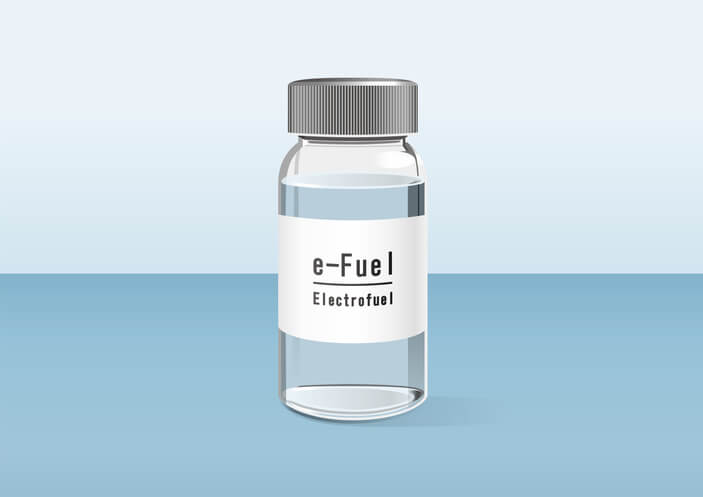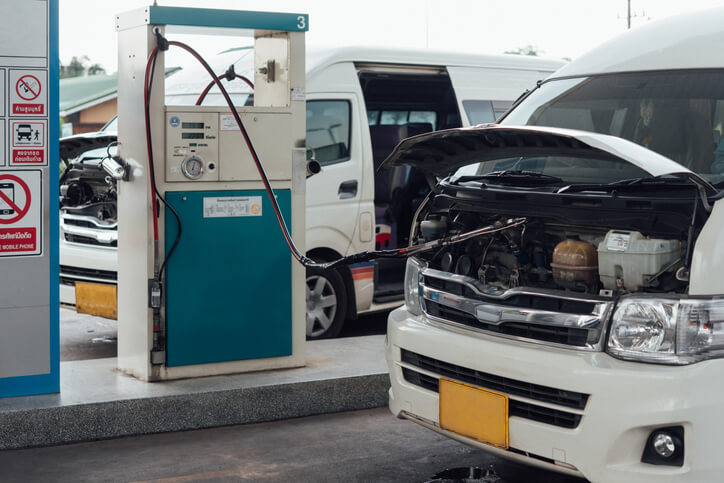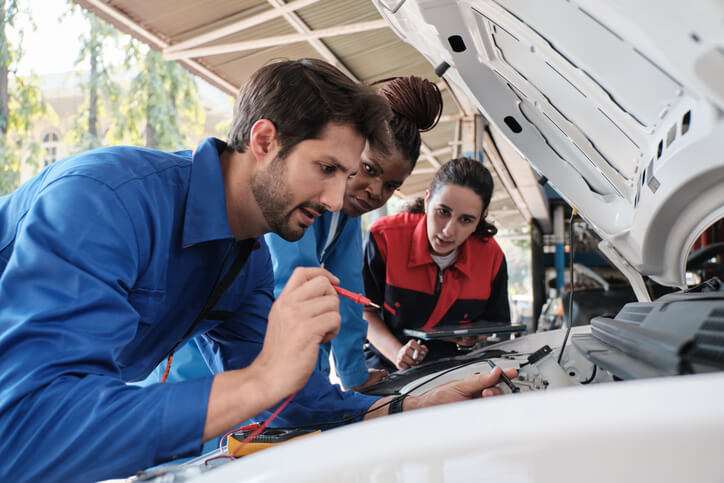E-Fuels Explained: Could Synthetic Fuels Extend the Life of Combustion Engines?
If you’re pursuing auto mechanic training, now is the time to learn how e-fuels may reshape your future career. As more countries push toward electrification and emissions reduction, internal combustion engines (ICEs) appear to be headed for retirement. But synthetic fuels, often called e-fuels, are offering a compelling twist in that story.
These alternative fuels, created using captured carbon dioxide and hydrogen, could dramatically reduce emissions from gas-powered vehicles while using existing infrastructure. It’s a topic every future auto technician should know.
What Are E-Fuels, and How Are They Made?
E-fuels are synthetic liquid fuels made by combining green hydrogen (produced from water and renewable electricity) with captured carbon dioxide. This process creates a fuel that can power existing gas and diesel engines with a significantly smaller carbon footprint.
Unlike biofuels, e-fuels don’t rely on agricultural resources. And unlike EVs, they don’t require a new fleet of vehicles or charging infrastructure. That means cars, trucks, and even aircraft already on the road can use e-fuels with little to no modification.
For automotive technicians, this opens up an exciting middle path between traditional fuel and electrification, one that will still require expert service, diagnostics, and repair.
E-Fuels vs. EVs: Complementary, Not Competitive
Electric vehicles (EVs) are crucial to a greener future, but they’re not a one-size-fits-all solution. Charging infrastructure takes time to build. Mining for battery materials is resource-intensive. And many classic cars, heavy-duty trucks, and aviation vehicles simply aren’t ready to go fully electric.
That’s where e-fuels come in. They provide a cleaner-burning option for these applications, helping reduce emissions now without waiting for a full EV transition. As someone studying auto mechanic training in a program like ATC Surrey’s, understanding these technologies helps you serve both traditional and emerging vehicle types.

Why Synthetic Fuels Matter for Aspiring Technicians
If you’re in auto mechanic training, learning about e-fuels is part of understanding how the industry is evolving. While EVs continue to grow in popularity, millions of combustion engine vehicles will remain in use for years. Governments and automakers are looking at e-fuels as a transitional solution to help reduce emissions while keeping these vehicles running.
For technicians, this means:
- Staying relevant by servicing vehicles using both traditional fuels and synthetic alternatives
- Understanding how fuel chemistry affects engine performance and emissions
- Being prepared for vehicles that blend legacy systems with new sustainability goals
ATC Surrey’s Automotive Technician Foundation Program ensures students get exposure to current technologies, helping them stay competitive in an increasingly eco-conscious job market.

Looking Ahead: E-Fuels in the Real World
While still in the early stages of production, companies like Porsche and Bosch are already investing heavily in e-fuel development. Government pilot programs are also exploring e-fuels as part of decarbonization strategies. That means the cars of tomorrow may not be strictly electric, but rather powered by a mix of clean electricity and clean-burning synthetic fuels.
For future technicians, this means staying flexible, informed, and future-ready. And that starts with training programs like ATC’s Auto Mechanic Training in Surrey, which prepare you not just for today’s vehicles, but for the next generation of automotive technology.
Do you want to explore programs at our auto mechanic school?
Contact ATC Surrey for more information.


